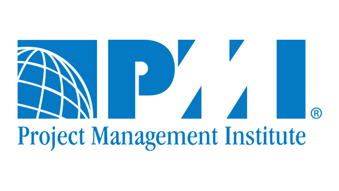
Everyone manages projects — even if “project manager” isn’t your official title. Whether you’re a marketing manager, website designer or an IT professional, project management is essential to achieving business objectives.

First, let’s get crystal clear on the proper terms and definitions. What is a project? The Project Management Institute defines it as
A temporary endeavor undertaken to create a unique product service or result.
In other words, it’s a temporary initiative that is agreed, planned and executed to achieve a specific goal. Let’s break this down with some terms.
Projects have a strict expiry date with activities to meet the output of a unique product or service. You can think of it as the output of a project. This output can be a product like a building a new home, a kitchen redesign or service such as improving existing business process. The output, together with the work done to create it, is called project scope.
This refers to a project being a temporary initiative. It is distinct from normal business operations in that it has a predetermined start and end date. Normal day to day activities that don’t necessarily have an end date will usually fall out side of the definition of a measurable item within the scope of a project.
Project scope is the part of project planning that involves determining and documenting a list of specific project goals, deliverables, tasks, costs and deadlines.
The final key attribute is cost, which is the resources specifically dedicated to accomplishing the goal in mind. These attributes form the project management triple constraint. Time, scope and cost are dependent on each other. After determining them at the start, if one of them changes, it will trigger a change in one or both of the others.
The project goal refers to achieving a desired outcome (performance goal) at a specific end date (time goal) tracking a series of milestones and tasks to accomplish the goals within a project. Think of goals like apples and bananas, related in a category but not necessarily the same thing.
Now that we have few key terms let’s dive a little deeper. A project must relate to a business strategy. But how are the two connected? And what creates the demand for a project in the first place? There are a few key triggers that will jump start a business into executing a project.
This is when your company wants to develop a product or service to address a needs or to keep up with the competition. For example, ABC Music School needs to develop new guitar program. But in order to get it done, the school needs to buy guitars, setup a new classroom, hire a new teacher, and plan a marketing budget to attract new students. This all has managed with time and budget constraints.
Also, the demand for a project may arise from the success of a previous project. The guitar program was so successful that ABC Music School is now launching an electric guitar program.

Urgency is a key factor when selecting projects, say a new regulation is imposed, which requires your music school to comply with the latest standards or lose access to government funding. You can bet that the stakeholders of the school will prioritize a project that resolves this first.
This process is referred to as project selection. It’s an essential task for top management. They must select the projects which bring the most value to the company, financial and non-financial. In the eyes of the stakeholders. Projects are investments, with the objective of seeing a worthwhile return for the business.
As you can probably guess, several projects are usually on the go at the same time.
That said, when the stakeholders are presented with possible projects, they often select several of them and add them into a project portfolio. The stakeholders then engage in what is called project portfolio management. This is the process of prioritizing projects and the administration and control of large sets of projects and programs.
Basically, the objective is to achieve the results and combined resources across projects in an optimal way.
Projects are investments, and with any investment, the need to be viable and profitable. Projects can consume large amounts of resources, money, time, effort and attention. So if they’re not aligned with the business strategy, then they’re a massive waste, leading to many disappointed stakeholders at best and a bankrupt business at worst. No pressure then.
Project managers play the lead role in planning, executing, monitoring, controlling and closing projects. They are accountable for the entire project scope, project team, resources, and the success or failure of the project. So once we have our project and that project has been selected by the stakeholders as the current initiative, it’s down to one person to make sure that project’s execution is successful.

The project manager is the CEO of the project. They will be accountable for the project’s success and for a project to be successful, it needs to accomplish the specific goal of the project within the prior agreed time and budget constraints. Everything needs to fit neatly into the project management triple constraint triangle. In fact, by assuming the project manager position for a project, the project manager implicitly agrees to work within these constraints and still meet the goal.
What if the time-frame and budget are insufficient? A project manager can’t shoot themselves in the foot and take on a project that is unlikely to be successful. Therefore, when the project management triple constraints are put in place, they must be realistic.
Have no fear! You already have the skills to get the job done. But I will list them for everyone else who is reading this blog :)

Effective project managers need more than technical know-how. The role also requires a number of non-technical skills, and it is these softer skills that often determine whether a project manager — and the project — will be a success.
Project managers should have strength in the following skills in order to be an effective manager: Accountability, leadership, organization, communication, Focus, problem-solving, and adaptability.
The most effective project managers are fully vested in the success of the organization and are able to roll with setback and pivot a project where appropriate. The dynamics of a project inevitably change mid-stream and the skills listed above are what will determine the outcome of the project.

You want to strive to be the Wayne Gretzky of project management by focusing on where the puck is going, not where it is.
And this is by no means an easy task. And often project managers will be accountable for multiple projects at the same time.
What does it mean to be accountable? The formal definition would be
to commit to achieve a certain result and then deliver this commitment.
Simple enough, but a lot easier said than done. Let’s shed light on the magnitude of this commitment.
Without accountability, there’s no reason to lead a project or be on a project team as you’re doomed for failure. Yet this isn’t nearly as easy to achieve as it might seem. Often, the members of a project team report to a different organizational leader, and so direct authority can be non-existent.
Leadership is an obvious skill for anyone in the project management industry, and with good reason: If you can lead, you can deliver. But most importantly, leadership is often what is missing in the project manager’s arsenal of highly developed technical skills. If you’re a project manager, I can guarantee you have felt the need to improve yourself as a leader at some point.
Project managers are accountable not only for their own tasks, but also all the tasks that other parties must work on and complete.
Every day managers have to schedule tasks, assign and track them, know where the project is at the moment, what resources are on the project, what is to be done next and plenty of other things. And it all should be planned and referred to at any required moment.
So, be sure before taking any project in any sphere, be it construction, IT, event or web development project that you firstly can organize your time, plans and all business goals.
One of the essential skills for project management is the ability to communicate well — understanding and being understood. Research in this space says, 70–90% of all project time takes communication. No one can plan and manage a project not expressing and sharing ideas, visions and points to others. Moreover, good communication skills of project managers are obligatory as they need to talk to stakeholders, collect their requirements, express own and then deliver them to everyone from a team.

Throughout the project management process, you might find yourself simultaneously overseeing dozens of workers and tasks to remain on schedule and hit your deadlines on time. While managing concurrent tasks, you must remain focused on hitting the metrics and reaching the overall goals for the project.
Steve Jobs is an excellent example of a relentless leader with total focus on a particular target, despite distractions vying for his attention at every turn.
To ensure the success of Apple, for example, Jobs cut 70% of the product line to focus on the profitable sectors of the company.
His focus on perfecting profitable products and technology ensured Apple could recover from the losses and eventually come to turn a significant profit, year after year.
“People think focus means saying yes to the thing you’ve got to focus on. But that’s not what it means at all. It means saying no to the hundred other good ideas that there are. You have to pick carefully. I’m actually as proud of the things we haven’t done as the things I have done.
Having a structured approach to solving problems always yields positive results. Critical and quick thinking is one of the skills for project managers that want to stay relevant in the fast-paced economy of today. If it takes you a week to come up with the “perfect” solution someone else might have beat you to the punch with a good solution that got the job done.
If you think you don’t have critical thinking or problem-solving skills, no worries! Think of some really good thinkers, problem solvers and people who really excel at what they do, keep them on a short list for a quick impromptu lunch or coffee. Spending just 15 to 30 minutes with a person who has the skills and brain power that can help you might just be the quick solution to a project that gets stuck.
Adaptability is about adjusting with the environment to overcome the challenges that come along with the project. Project managers need to understand that project management is evolving with an alarming rate. If the managers don’t adopt what is necessary, there will be no time to regret later.
In a survey, it was concluded that more than 55% of the projects fail if they don’t evolve with time and adopted the necessities that are required to complete the project successfully.
This is an era of evolution. Things, people, and systems are changing in the blink of an eye. If project managers don’t take this opportunity to learn, unlearn, and relearn, they will face serious consequences in the future.

Developing these skills and this knowledge is not a linear progression, however. Think of these skill-sets as containers, each with a tap above them and connected by tubes. They fill at different speeds and in varying orders, but it’s near impossible to fill only one.
Although there are things like negotiating, risk management, cost management, and effort required to deliver each project, a great project manager will be really strong in some key areas, good in others and “needs work” in some. That is ok, being aware of them is more than half the battle.
Hopefully this blog has shed some light on areas of your life, business or role within a company.
Work can be stressful and very serious at times. Don’t forget to have fun and keep your team on their toes with good humor. An ability to see the funny side of project management will keep you on an even keel during difficult times.
Be great today!

1.844.493.1098